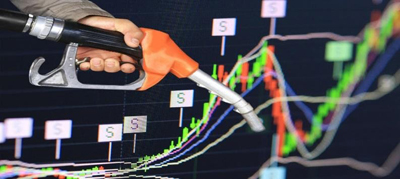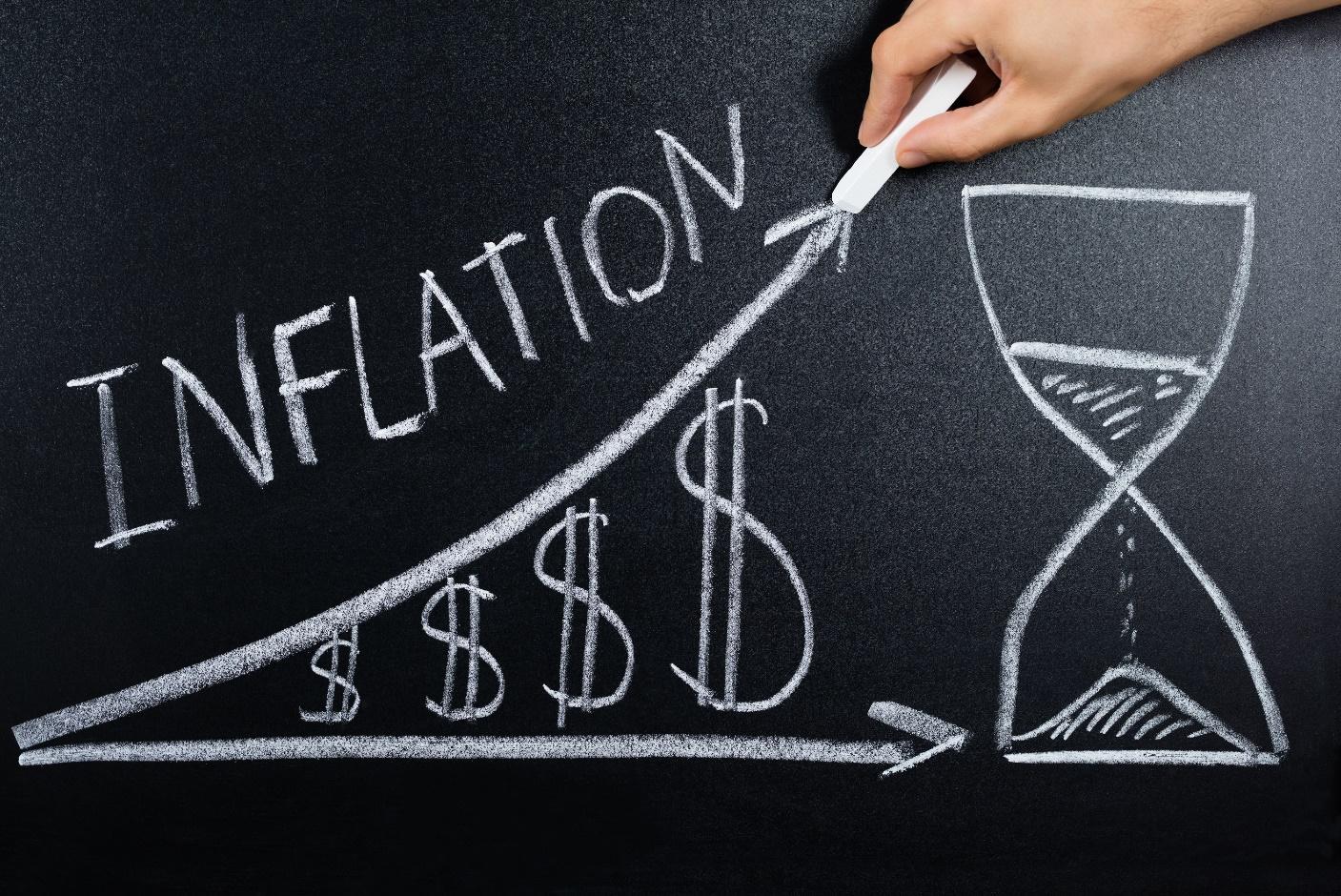Inflation Is About To Explode, Commodities May be The Way Out!
Brane
 The most fundamental laws of economics, the ones that have stood the test of time over a millennium, have not been suspended. Explosive growth in debt primarily financed by central banks is likely to lead to higher inflation. Combined with debt, the reopening of the economy will deliver a one-two punch to rising inflation. Commodities have historically been a good bet during inflationary periods. This assumption makes sense because for prices to grow, the costs of commodities that feed into the various goods and services of the economy should increase too. Whether energy, metals, agricultural goods, or other commodities, most tend to rise during times of high inflation. The most fundamental laws of economics, the ones that have stood the test of time over a millennium, have not been suspended. Explosive growth in debt primarily financed by central banks is likely to lead to higher inflation. Combined with debt, the reopening of the economy will deliver a one-two punch to rising inflation. Commodities have historically been a good bet during inflationary periods. This assumption makes sense because for prices to grow, the costs of commodities that feed into the various goods and services of the economy should increase too. Whether energy, metals, agricultural goods, or other commodities, most tend to rise during times of high inflation.
Anyone who has a reasonable interest in economics is sitting on pins and needles these days. On the one hand, the COVID pandemic with its frightening variants and uncontrollable spread in Asia seems more robust than ever. Yet, vaccine campaigns, loosening of restrictions in the United States, and worn-out audiences point to rising normalcy. The increasing inflation rate, the continual government stimulus programs, the ridiculous housing market, and the behavior of oil and other commodities all signal an impending economic crash to many investors.
What does that mean to the individual trying to regain some solid ground economically? By looking more closely at the behavior of oil and commodities and listening to what some fundamental market analysts are saying, individuals will be in a better position to make intelligent decisions to protect themselves from the coming runaway inflation.
With the May 2021 Consumer Price Index Shows Fastest Inflation Since 2008 - The New York Times (nytimes.com) being higher than expected and inflation already up 5% year over year, the inflationary cycle has already arrived. Commodities are the traditional hedge for when the CPI begins to run hot. A unique twist on this is to invest in companies linked to commodities to boost your portfolio returns. Of course, you can directly buy commodities, like precious metals, but those require significant capital to be successful as an inflation hedge. Brane believes the best way to play commodities is to invest in a technology that provides an edge to investing. Brane is currently working on A.I. technology to give investment funds the insight needed to invest in the oil and gas commodity space successfully.
Hopes for Normalcy Boost Oil Demand
Let's face it. As serious as the COVID pandemic has become with endless news stories of surges worldwide, most everyone is anxious to get back to some level of pre-pandemic normalcy. Many communities rely on vaccines to protect them from at least some versions of COVID, while those who have recovered from infection place hope in natural immunity.
As the weather turns warmer, everyone begins to realize how long it's been since they've taken a trip or planned vacation. As the number of cases seems to be finally on a sustainable downward trajectory, government lockdown regulations are beginning to loosen, at least in the United States. These events, in turn, begin to fuel an increase in demand for travel, which means a rising demand for oil and gas. The increased demand, coupled with rising inflation due to stimulus money, will drive up all goods and services.
As more states open up, Peter McNally, global head for industrials, materials, and energy at Third Bridge, expects demand and prices to rise in upcoming months. "Gasoline inventories in the U.S. are well below where they were a year ago, and we've taken out refinery capacity," McNally explained. "We've seen the impact on demand as more people get vaccinated, so we're going to get that tailwind plus seasonality coming later this month."
PVM oil broker Stephen Brennock noted how oil prices have exhibited a steady climb in late April and early May, illustrating that fuel demand is expected to grow despite surges in COVID cases in Asia. "A return to $70 oil is edging closer to becoming a reality," Brennock said.
Commerzbank analyst Eugen Weinberg agreed. "The partial lifting of mobility restrictions, the expectation that tourism will return soon, and the lure of the psychologically important $70 mark ( achieved on 6/8/2021) are all likely to have contributed to the price rise."
Exxon Prepares for Surge
During the 2020 oil crash, the world's largest oil company refrained from cutting investor dividends, which most of its competitors did. As a result, Exxon is now making an earlier rebound from last year's crisis.
The company announced excellent earnings at the end of April, breaking a record losing streak just in time to take advantage of rising oil and natural gas prices. This increased cash flow resulting from the higher prices allowed the company to pay out both dividends and reduce debt, positioning the company well as prices continue to rise.
The Correlation Between Gold and Oil

During the COVID-19 pandemic, oil and gas prices plummeted during government lockdowns, which led to a significant slashing of production and maintenance within the industry. As a result, the industry will likely see a supply shortage on the immediate horizon. This rise in demand for both vehicle and airplane fuel accelerates faster than new drilling sites can be identified and begin production. (U.S. rig construction count currently stands at 456, an increase of 172 rigs from the same time last year)
As oil prices continue to rise, oil and gas companies will eventually have enough incentive to pursue additional oil drilling. There is typically a positive correlation between the price of oil and the price of gold. According to a gold price framework, three factors drive gold prices. The factors are central bank policy, central bank inventory, and longer-dated energy prices.
As oil shortages drive prices of both commodities and gold higher during the impending economic crash, it is interesting to note that demand for gold continues to surge in both China and India. These two countries sit in the top two spaces as far as gold consumption during early 2021, returning to pre-pandemic levels.
Perhaps these Asian governments are preparing to take advantage of the opportunities afforded in an impending economic crash if you realize the situation soon enough.
Other Reasons May Shift Demand to Oil and Natural Gas
However, under most scenarios, oil and gas will remain a multi-trillion-dollar market for decades. Given its role in supplying affordable energy, it is too important to fail. The question of how to create value in the next normal is therefore fundamental. Oil and gas after COVID-19: The day of reckoning or a new age of opportunity? | McKinsey
Despite fears of an impending economic crash, commodities such as oil and natural gas are expected to perform well in the future for multiple other reasons, in addition to a relaxation of lockdown measures and an increase in travel.
For example, China has announced the country's goal of net-zero greenhouse gas emissions by the year 2060, which, according to experts, would require shutting down 600 coal-fired power plants. This shutdown would need the country to replace them with oil, natural gas, or renewable energy sources.
The key for China will be whether this environmentally conscious decision brings the economic benefits that the country is also prioritizing. According to Matthew Gray, the co-chief executive of TransitionZero, renewables could create as many jobs as would be lost from shuttering the country's coal plants.
Al Gore added in the forward of the analysis, "The economic opportunity presented by a transition from coal to clean energy shows that climate action and economic growth go hand in hand."
In an unrelated example, an article in Business Insider notes that 20% of all California electric vehicle owners are switching back to gas-powered cars due to the inconvenience of charging vehicles regularly. In our increasingly comfortable and immediate society, convenience and getting things when and where we want them often trumps ideology and takes no notice of something like an economic crash or sky-high inflation.
Perhaps related to these and other reasons, Goldman expects the beginning of a new commodity supercycle in the upcoming months. The firm predicted that during the next six months, the world will see "the biggest jump in oil demand ever" or "50% larger than the next largest increase over that time frame since 2000."
Inflation Expected to Continue Acceleration

It's clear by looking at the prices of various goods and services that inflation has already begun. Unfortunately, many experts see this as only the beginning, with the acceleration expected to continue.
The Bloomberg Agricultural Spot Index reached a nine-year high recently, which means that food prices will be soaring soon.
In addition, a Bank of America report warns that inflation is "arguably the biggest topic during this earnings season, with a broad array of sectors citing inflation pressures." These are likely to include raw materials, transportation, labor, and commodities when it comes to pending price increases.
As an investor, you should consider serious thought on protecting your assets from the hidden tax of inflation. One of the best strategies combines technology and oil and gas.

Brane is a pioneer in using artificial intelligence to mine significant amounts of paper-based historical data to predict where large oil and gas companies will be drilling next. With this knowledge, investment funds and family offices will invest in oil and gas mineral rights before they appreciate significantly. Brane will create additional value for these commodity assets and reap the rewards through licensing fees and profit-sharing.
Please go to Wefunder.com/Brane to see how you can benefit from investing in a FinTech company that's changing how investment funds purchase oil and gas minerals.
wefunder.com
| 

![[Most Recent Quotes from www.kitco.com]](http://www.kitconet.com/images/live/s_gold.gif)
![[Most Recent USD from www.kitco.com]](http://www.weblinks247.com/indexes/idx24_usd_en_2.gif)
![[Most Recent Quotes from www.kitco.com]](http://www.kitconet.com/images/live/s_silv.gif)


